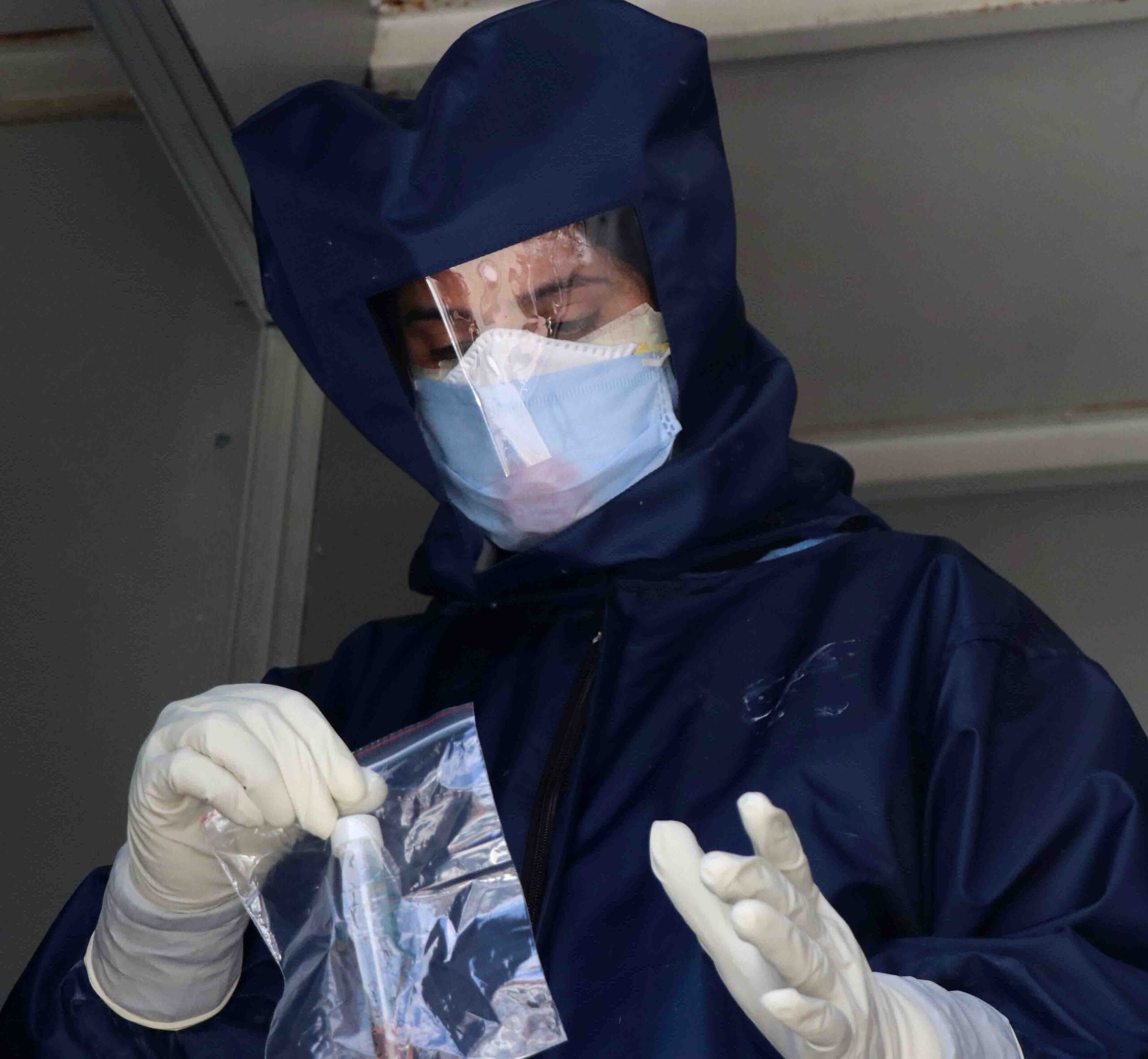Srinagar: Emotions ran high when doctors told him that he has tested negative after the second COVID test. Soon after the 52-year-old patient was discharged from Chest Diseases Hospital.
Call it an afterthought, doctors shifted him to SMHS Hospital for intubation (inserting a tube into a person or a body part, especially the trachea for ventilation) to rule out any error.
Much to the surprise of doctors and his family, he tested positive again. “In his fourth time, the sample was taken from the lower respiratory system, which is more sensitive. This indicates that the site where the samples are taken to determine the accuracy level. In the first three tests, the swab was taken from the upper respiratory tract, which is less sensitive,” the microbiologist who conducted his tests said.
This is not an isolated case where a virus has played hide and seek in the human body. The valley was sent into a tizzy when some positive cases tested negative at a different laboratory. Among them was a senior journalist who tested positive at Chest Diseases hospital but was later tested negative at SKIMS, Soura, leading to a lot of confusion and doubt at the credibility of the hospitals and laboratories.
Doctors and microbiologists unanimously said that despite best efforts “no test can be 100% accurate”. Health experts are of the opinion that every test has its own rate of true positive, true negative, false positive, and false negative.
It is pertinent to mention that the most common diagnostic test used to identify people infected with Covid-19 in the valley is a reverse-transcription polymerase chain reaction test or RT-PCR. It works by detecting the virus in a person’s cells –through samples (swabs were taken either from the throat or nose).
“The accuracy of a medical test is determined by measuring two things: sensitivity and specificity. A sensitive test will correctly identify people with the disease. Sensitivity measures correct positive results, while a specific test will accurately identify people without the disease. Specificity measures correct negatives,” he said.
The microbiologist pointed out that if a test is 90 percent sensitive, it will correctly identify 90 percent of people who are infected – called a true positive. “However, 10 percent of people who are infected and tested would get a false negative result – they have the virus, but the test said they don’t,” he said.
Similarly, he said if a test is 90 percent specific, it will correctly identify 90 percent of people who are not infected – registering a true negative. “However, 10 percent of people who are not infected will test positive for the virus and receive a false positive,” the microbiologist said.
Another female microbiologist said the sensitivity of RT-PCR tests ranges from 66 to 80 percent.
“False-negative results are likely occurring because health care providers at times aren’t collecting samples with enough of the virus for the tests to detect,” she said.
Owner of noted Qadri’s Lab Srinagar, Dr. Ismail Qadri said in RT-PCR testing, sensitivity may vary depending on the time of testing from the actual induction of virus into the body and also proper sample collection.
“If a sample is not properly collected it may come back false negative. It is recommended that tests may be done on the 5th day in contact with COVID patients. COVID patients when symptomatic are usually positive,” he said.
Nodal Officer Government Medical College Dr. Salim Khan said the real-time RT–PCR technique is highly sensitive and specific and can deliver a reliable diagnosis in as little as three hours.
“Compared to other available virus isolation methods, real-time RT–PCR is significantly faster and has a lower potential for contamination or errors,” he said.
Dr. Salim said the dedication of healthcare professionals and microbiologists should not be doubted. “Things like these should be dealt with technically. The credibility of health care institutes and laboratory personnel should not be put at stake. If anyone had a problem with the test reports, they could have sought an opinion from the experts. The unnecessary doubting on the credibility of the microbiology laboratories and the trained staff, who are complying with national standards, is not acceptable,” he said.
Discover more from The Kashmir Monitor
Subscribe to get the latest posts to your email.




